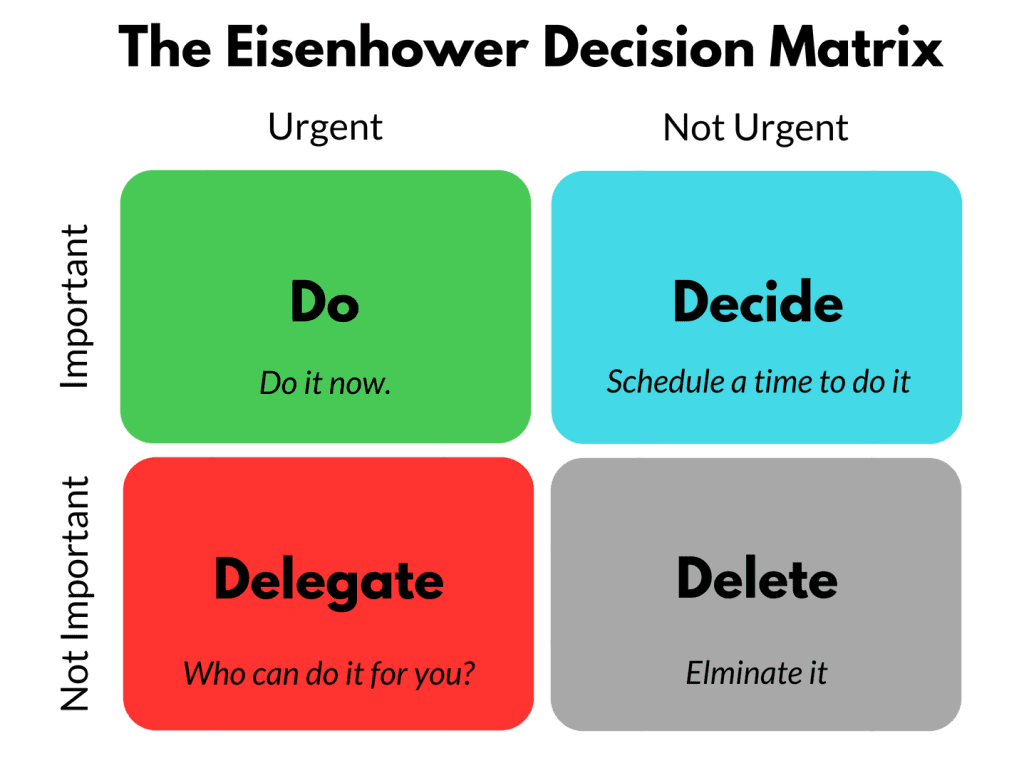Time management handbook
Time management – the technique of organizing and monitoring the amount of time spent on various tasks. Effective organization of time allows an individual to accomplish more in less time, reduces stress, and leads to professional success.
Managing your time features organization, planning, and scheduling to make the most of the time provided. Time management approaches also include a person’s unique scenario as well as essential strengths and qualities.
Can you explain the importance of time management?
The significance of time management lies in its capacity to provide value to time, allowing everyone to make the best use of their time. It is used in business to define objectives and targets for firms and their staff. Employees with solid time-management abilities are more likely to perform high-quality work and accomplish their objectives. Time management also assists managers in understanding what their staff is capable of and setting reasonable targets.
Employees with ineffective time management abilities miss targets, provide bad work, become extremely worried and nervous, and run out of time resources. When time is wasted, it has a negative impact on employees, management, and the firm.
Time poverty is caused by ineffective or absent time management. People get into this mindset when they have an excessive amount to accomplish and not enough time to do it. Their personal life deteriorates, and while working hard, they feel progressively overrun by duties and tasks.
Time management demands proactive choices about what one wants to undertake. Individuals who do not manage their time constantly respond to external stimuli and lose authority over their work and life.
Work requires time in general, but certain jobs are more useful than others. Redistributing time to higher-value tasks boosts productivity and promotes work-life balance. A healthy workplace is one that has great time management.
Do you want to build and maintain new habits? Get your free PDF version of the Don't Break The Chain calendar and start today!
Do you want to build and maintain new habits? Get your free PDF version of the Don't Break The Chain calendar and start today!
Benefits of Time Management
- Stress reduction
Creating and sticking to an obligation plan helps to lessen nervousness. You realize that you are making visible progress as you cross tasks off your “to-do” list. This keeps you from being stressed.
- Increased creativity.
Once employees are not pressed for time, they have the room and energy to be more innovative in their job. They may actively participate in their job rather than just listening. This boosts creative thinking.
- More possibilities
Good time management results in greater opportunities and less time discarded on minor things. Employers value scheduling abilities above anything else. Any business would benefit greatly from the capacity to prioritize and plan tasks.
- Capability to achieve targets
Professionals who practice strong time management are better equipped to reach goals and objectives in less time.
- Enhanced productivity
Workers who like their jobs and are less inclined to be absent are more productive.
- Reduced absenteeism
Employees who are stressed or burned out take more sick days and additional time off.
- Reduced turnover
Personnel are more inclined to stay at their current employment if they have a better work environment.
Time Management Complications
Internal or external constraints to efficient time management are classified.
Internal barriers are those that originate inside the person and are under the individual’s command. These involve the following elements:
- Inability to control oneself. A person who doesn’t have self-control is inclined towards distraction and may miss objectives as a result.
- Motivation deficit. Someone may not see the point in accomplishing a thing, instead opting to pursue other interests and make different goals.
- Anxiety. People who are stressed are more prone to have difficulty focusing and making decisions.
- Please others. Anyone who is obsessed with satisfying everyone will surely fail since other people’s requirements are incompatible; the individual will ultimately put oneself drained attempting to please everybody.
- Multitasking. Attempting to perform too many tasks at once, or multitasking, may result in failure in all of them.
- Procrastination. People put off duties until they are under pressure to finish them. This is a retaliatory activity.
Those internal aspects are related to a person’s routines, acts, and deeds. Even if the patterns are subconscious or established, a human has the ability to manage them and modify the way they spend time.
External obstacles are those that exist outside of the individual. They consist of the following elements:
- Workload. A person may find themselves with more obligations than they can manage.
- Interruptions. Exterior life issues, such as a family emergency or a worldwide epidemic, may interfere with somebody’s capacity to efficiently manage their time. Simple distractions like social media may also be an unnecessary time drain.
- Work restrictions. The individual’s employment or company may prevent them from achieving their ambitions.
- Inadequate business resources. A corporation may not give the resources required for employees to fulfill their tasks. For instance, it may be remote-only employment, but the organization does not provide collaborative tools to allow teammates to work effectively online.
External challenges, unlike internal ones, are beyond the authority of the individual. They emerge from the outer world. However, the person has influence over how they respond to these obstacles.
Methods and advice for time management
- Establish clear objectives.
Define aims that are both reasonable and quantifiable. Whenever setting goals, use the SMART method. Make sure your goals are Specific, Measurable, Attainable, Relevant, and Time-bound.
- Set logical priorities
Sort jobs according to their priority and significance. Examine your everyday chores, for example, and identify which are:
- Critical and urgent: Complete these duties as soon as possible.
- Essential but not urgent: Determine when you will complete these activities.
- Urgent but unimportant: If feasible, delegate these responsibilities.
- Set things aside if they are not urgent or vital.
More you’ll find here – or later in the text.
- Establish a time constraint for completing a task.
Having a time limit for completing duties allows you to be more concentrated and productive. Putting the tiny extra attempt to determine the amount of time you need to devote to each activity might also assist you in identifying possible difficulties prior to they emerge. You may then develop preparations to cope with issues.
Consider that you need to complete 5 evaluations in time for an appointment. You understand, nonetheless, that you will only manage to complete 4 of them in the remaining time until the meeting. Since you are aware of this information ahead of time, you may be ready to assign the creation of 1 of the assessments to a different person. However, if you weren’t bothered to run a time check on your duties ahead of time, you may have discovered your time dilemma only 1 hour prior to the event. At that stage, it may be significantly harder to identify somebody to outsource one of the evaluations to, as well as try to fit the labor into their day.
- Take a little pause in between duties.
It is more difficult to keep concentrated and inspired when performing many jobs without a break. Allow for some pause between jobs to clear your mind and recharge your batteries. Think about getting a little sleep, taking a short stroll, or meditating.
- Get organized.
Make use of your timetable for better future time management. Set deadlines for projects or activities that are required to complete the entire project. Consider which days would be ideal to devote to various projects. As an example, you may have to organize a conference call to discuss finances on an occasion when you know the firm’s accountant will be accessible.
- Eliminate unnecessary duties and responsibilities
This is critical to get rid of redundant labor or jobs. Evaluate what is important and what demands your attention. By eliminating unimportant occupations and actions, you will have more spare time to devote to things that are truly crucial.
- Have an activity log of yours
Have a weekly activity log to discover the moments of the day that are most inclined to be fruitful. Use this data to influence your task allocation and workload management. Avoid agreeing to more work than you can easily handle, and talk with superiors about unfair requests.
Time Management Instruments
Here are some time management tips and instruments:
The Eisenhower matrix is a prioritization technique that classifies jobs into urgent and significant tasks. The objective is to persuade individuals to give priority to more essential duties over lesser-value ones but also refocus from urgent tasks that redirect attention away from those that are crucial.
According to the Pareto concept, 80% of the effects result from 20% of the factors. It is helpful in classifying and analyzing courses of action based on their weight or worth in a specific environment. It enables individuals to make better use of their resources.
The Pomodoro technique divides time into 25-minute periods of intense work separated by 5-minute pauses, with a longer rest after 4 uninterrupted work sessions. This assists people in resisting the desire to postpone and multitask.
Time blockage is a time management strategy that separates the day into specified time sections. If you prefer working with this content offline or customizing it further, you can download the Time Management Handbook in pdf, and then use a reliable pdf to word converter to edit the material in a Word document.
The method of Getting Things Done.
The Getting Things Done methodology is a task management strategy that teaches people to quit overthinking major and minor activities and begin to prioritize them, with the objective of lowering anxiousness and increasing productivity and purity of thought. It entails writing every detail down, classifying it according to significance, and then carrying out the duties.
Apps for increasing productivity.
Productivity applications may be used to establish timetables and set reminders.

Theories of leadership and time management
Many time management approaches are utilized in the administration of projects to assist teams in meeting targets.
The following are some deeper theories and notions about time management strategies:
- Parkinson‘s principle. By virtue of Parkinson’s law, the volume of effort necessary to complete a particular activity will increase to cover the time assigned to the task.
- The law of Hofstadter. As stated by Hofstadter’s law, a task will always require longer to accomplish than expected. People exaggerate a system’s perks, in this example, the individual’s ability to perform under deadlines.
- The rule of 70%. Based on the 70% rule, workers can achieve greater results despite working at a slower pace by saving energy.
- The Pickle Jar hypothesis. The pickle jar concept is a visual representation of how a person’s day might be loaded with numerous minor, insignificant activities that take up room for the big things.
Effects of poor time management
Let’s also look at the consequences of poor time management:
- Bad workflow
Failure to plan ahead and meet goals leads to inefficiency. For example, if you have several essential tasks to do, a good plan is to finish related work together or in sequence. However, if you don’t plan onward, you may have to go back and forth to finish the job. This leads to lower efficiency and lower productivity.
- Waste of time
Bad time management leads to wasted time. For instance, talking to friends on social media while completing a task is distracting and wastes time.
- Lowering your Control
When you don’t know what your next task is, you lose control of your growth. This can lead to higher levels of stress and anxiety.
- Mediocre work quality
Deficient time management usually affects work quality. For example, rushing through the list of tasks and trying to complete them as fast as possible – clearly affects quality.
- Bad Reputation
When customers and employers can’t trust you to complete tasks on time, their expectations and feelings for you are skeptically affected. If your customers can’t expect you to finish things on time, they may move their business somewhere else.
To finish up
Time management is a vital aspect of business process management (BPM), which entails simplifying processes in order to boost efficiency and production. BPM, like time management, has its own set of difficulties.
We hope that by reading this blog, it will become a great guide book and compilation of time management techniques, methods, theories and implications – you are more than welcome to choose the one or several that works for you the best. And when you get too used to them – try other ones.
Even more interesting content is coming soon.
LUXAFOR HELPS PEOPLE TO ACHIEVE THEIR GREATEST PRODUCTIVITY LEVELS WITH A WIDE VARIETY OF OFFICE PRODUCTS. LET’S BE PRODUCTIVE TOGETHER!
Do you want to build and maintain new habits? Get your free PDF version of the Don't Break The Chain calendar and start today!
Do you want to build and maintain new habits? Get your free PDF version of the Don't Break The Chain calendar and start today!
Time Management Handbook
Recent Posts
- The Ultimate Guide to Managing Business Email and Deep Focus Time
- Manufacturing SEO Consultant Tips to Maximize Sales Productivity
- Future of Remote Work: Why Visual Availability Signals Can Reduce Meeting Overload
- Managing “Do Not Disturb” Culture in Open Offices and Remote Teams with Visual Status Lights
Tags
Archives
- January 2026
- December 2025
- November 2025
- October 2025
- September 2025
- August 2025
- July 2025
- June 2025
- May 2025
- February 2025
- January 2025
- December 2024
- November 2024
- October 2024
- September 2024
- August 2024
- July 2024
- June 2024
- May 2024
- April 2024
- March 2024
- February 2024
- January 2024
- December 2023
- November 2023
- October 2023
- September 2023
- August 2023
- July 2023
- June 2023
- May 2023
- April 2023
- March 2023
- February 2023
- January 2023
- December 2022
- November 2022
- October 2022
- September 2022
- August 2022
- July 2022
- June 2022
- May 2022
- April 2022
- March 2022
- February 2022
- January 2022
- December 2021
- November 2021
- October 2021
- September 2021
- August 2021
- July 2021
- June 2021
- May 2021
- April 2021
- March 2021
- February 2021
- January 2021
- December 2020
- November 2020
- October 2020
- September 2020
- August 2020
- July 2020
- June 2020
- May 2020
- April 2020
- March 2020
- December 2019
- November 2019
- October 2019
- September 2019
- August 2019
- July 2019
- April 2019
- March 2019
- January 2019
- December 2018
- November 2018
- October 2018
- September 2018
- August 2018
- July 2018
- June 2018
- August 2017
- May 2017
- April 2017
- February 2017
- January 2017
- November 2016
- October 2016
- September 2016
- August 2016
- July 2016
- June 2016
- May 2016
- April 2016
- March 2016
- February 2016
- January 2016















